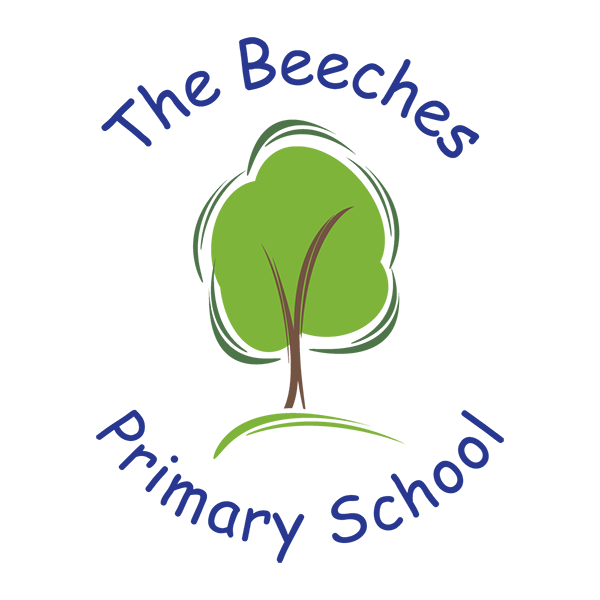Science
Intent
Science inspires children. It excites them and develops their innate curiosity. At The Beeches Primary School, we recognise the power of this as a starting point, and it is our intention to harness these values and provide a high-quality Science curriculum which delivers opportunities to grow these positive beginnings into a life-long passion to explore the world around them.
At The Beeches Primary School, in conjunction with the National Curriculum and our Beeches science Curriculum, our science teaching offers opportunities for pupils to develop their scientific knowledge and conceptual understanding, and develop and use a range of skills for working scientifically, including questioning, researching, and making first-hand observations.
The teaching and acquisition of new vocabulary is key in the science curriculum. Scientific language is taught and built on as topics and subject areas are revisited in different year groups and across key stages. In addition, we see Science as a way of not only exploring our Big Ideas, but also as a way of developing our school Core Values through collaborating showing resilience, articulating ideas and explanations, reflecting on our learning, demonstrating creativity in our thinking and being all-round excellent learners in science.
Finally, it is our intention that our science curriculum will enable pupils to recognise the importance of science in daily life and understanding the science behind climate change and sustainability issues of the future.
Implementation
At the Beeches Primary School, we expect our children to develop their scientific knowledge through carefully planned, exciting Science opportunities, taught through our science curriculum. Several projects are taught in each year group.
The spiral curriculum allows pupils the opportunity to revisit and embed key national curriculum objectives year on year. Alongside this, progression across year groups is explicitly planned for the different objectives using the science progress map and being underpinned by The Beeches’ 6 big ideas. This ensures high expectations of teaching and learning. Every opportunity to make cross curricular links will draw upon previous learning and practise their scientific skills.
Each scientific topic begins with the introduction of a knowledge organiser including key vocabulary, definitions and knowledge facts. Teachers ensure that all children are provided with rich and memorable learning experiences. That embed knowledge and vocabulary. We find opportunities for children to develop their understanding of their surroundings by accessing outdoor learning.
Alongside the main projects, each half term, children complete a Working Scientifically companion project that develops each aspect of the scientific enquiry curriculum. As the children’s knowledge and understanding increases, and they become more proficient in selecting and using scientific equipment, and collating and interpreting results, they become increasingly confident in asking and answering deeper scientific questions about the local and wider world and coming to conclusions based on real evidence. Teachers ensued children use scientific equipment effectively to develop the skills of working scientifically in order to embed scientific understanding.
Teachers develop a positive attitude to science learning within their classrooms and through reinforcement, all children are capable of achieving high standards in Science. Through our planning, we involve problem solving opportunities that allow children to find out for themselves; children are encouraged to ask their own questions and are given opportunities to use their scientific skills and research to discover the answers. Planning involves teachers creating engaging lessons, using carefully selected resources to aid understanding of conceptual knowledge. Teachers use precise questioning in class to test conceptual knowledge and skills, and assess children regularly to identify those children with gaps in learning, so that no one is left behind.
Impact
At the end of Key Stage 1, children will be able to ask and answer scientific questions about the world around them. They will have begun to explore how equipment is used to take measurements and observations. In addition, they will experienced scientific exploration by testing, carried out by following a set of instructions and making a prediction is about at what might happen in an investigation. In the wider world, they will start using their scientific knowledge to question what is happening in the world around them.
At the end of Key Stage 2, children will have a rich scientific knowledge. They will begin able to ask and answer more in-depth scientific questions about the local and wider world. The children will make links in their knowledge and start to explain why things may happen. They will have a clear understanding of the importance of scientific testing and evaluating.
Having studied the full primary science curriculum, the children begin to question and evaluate how science impacts their lives now and in the future. They will also show curiosity and ask further scientific questions to engage, analyse and reflect on their understanding of the sciences.
Ofsted 2014
Subject Leaders
Mr Comer, Mrs Jhamillah and Mrs Wright
Below is our draft subject progression document that shows the content of our school curriculum in each academic year. Our progression documents are constantly being updated and refined to achieve the very best possible outcomes for our children.
